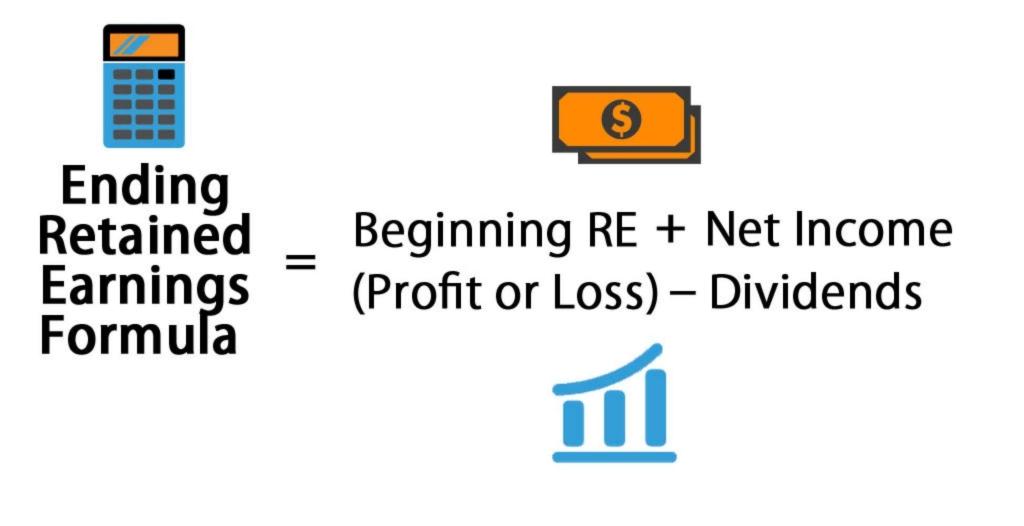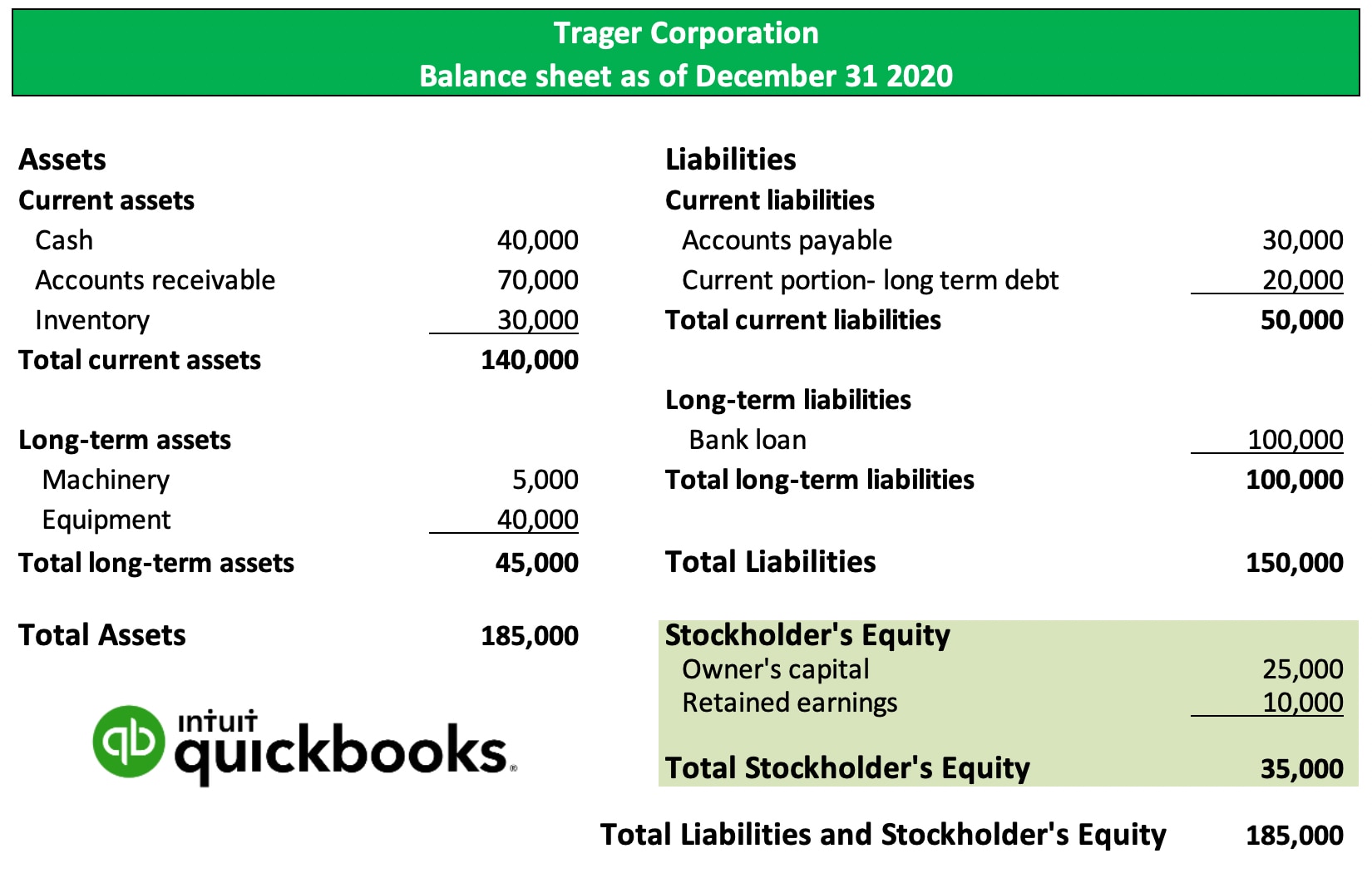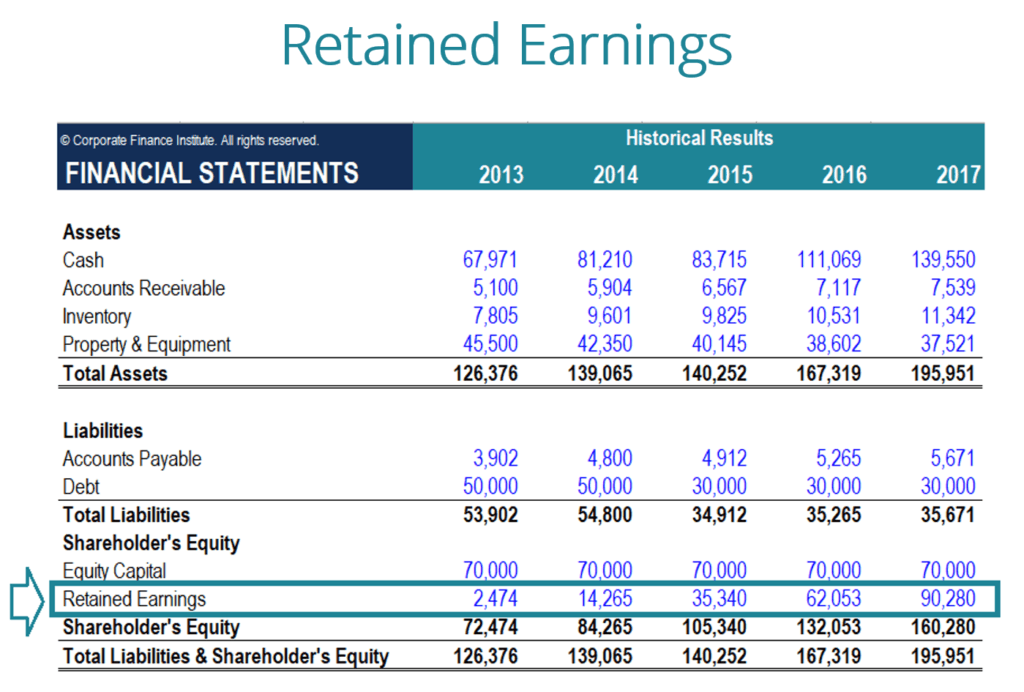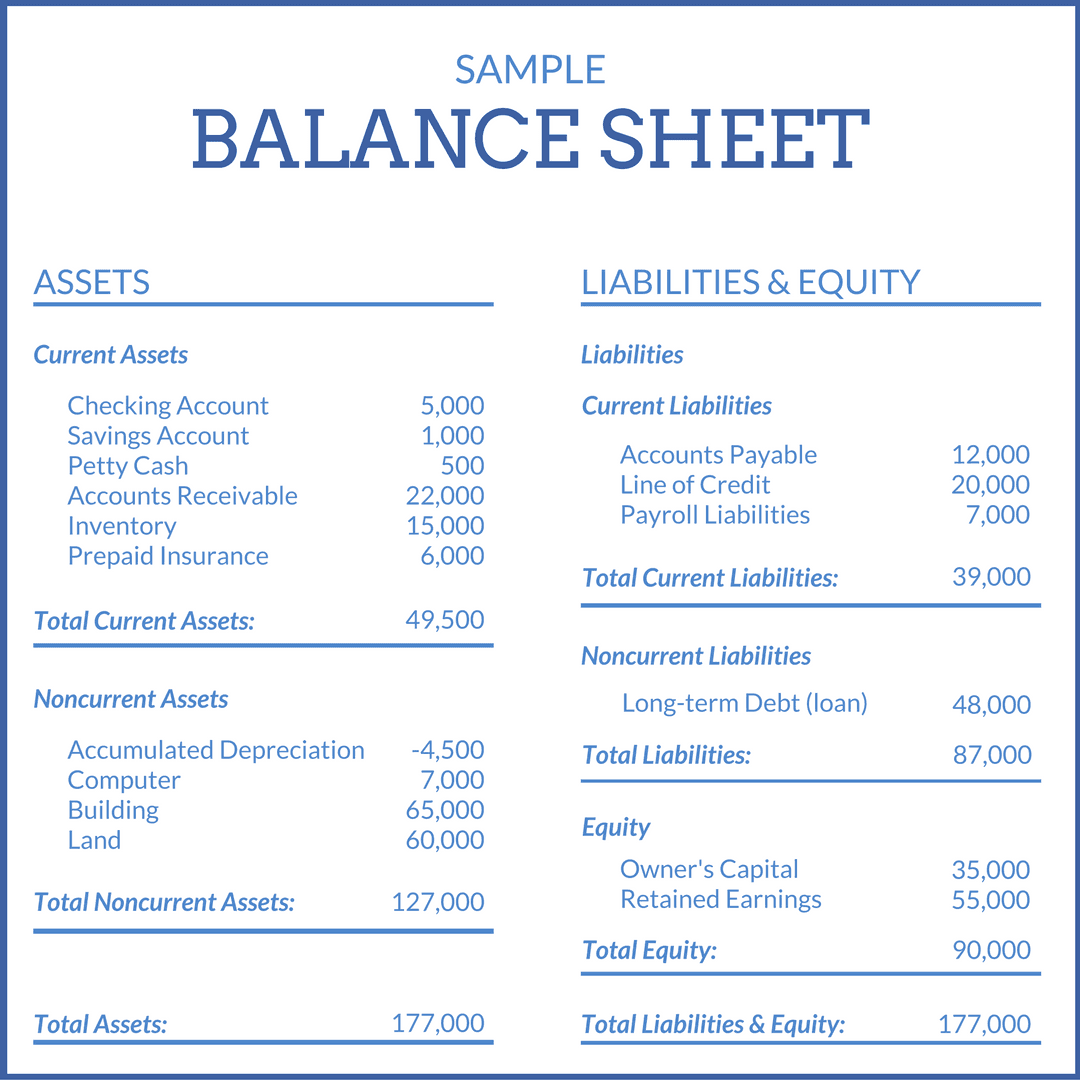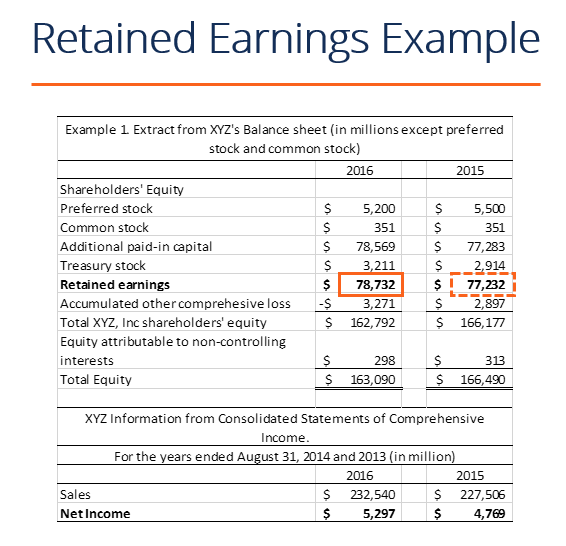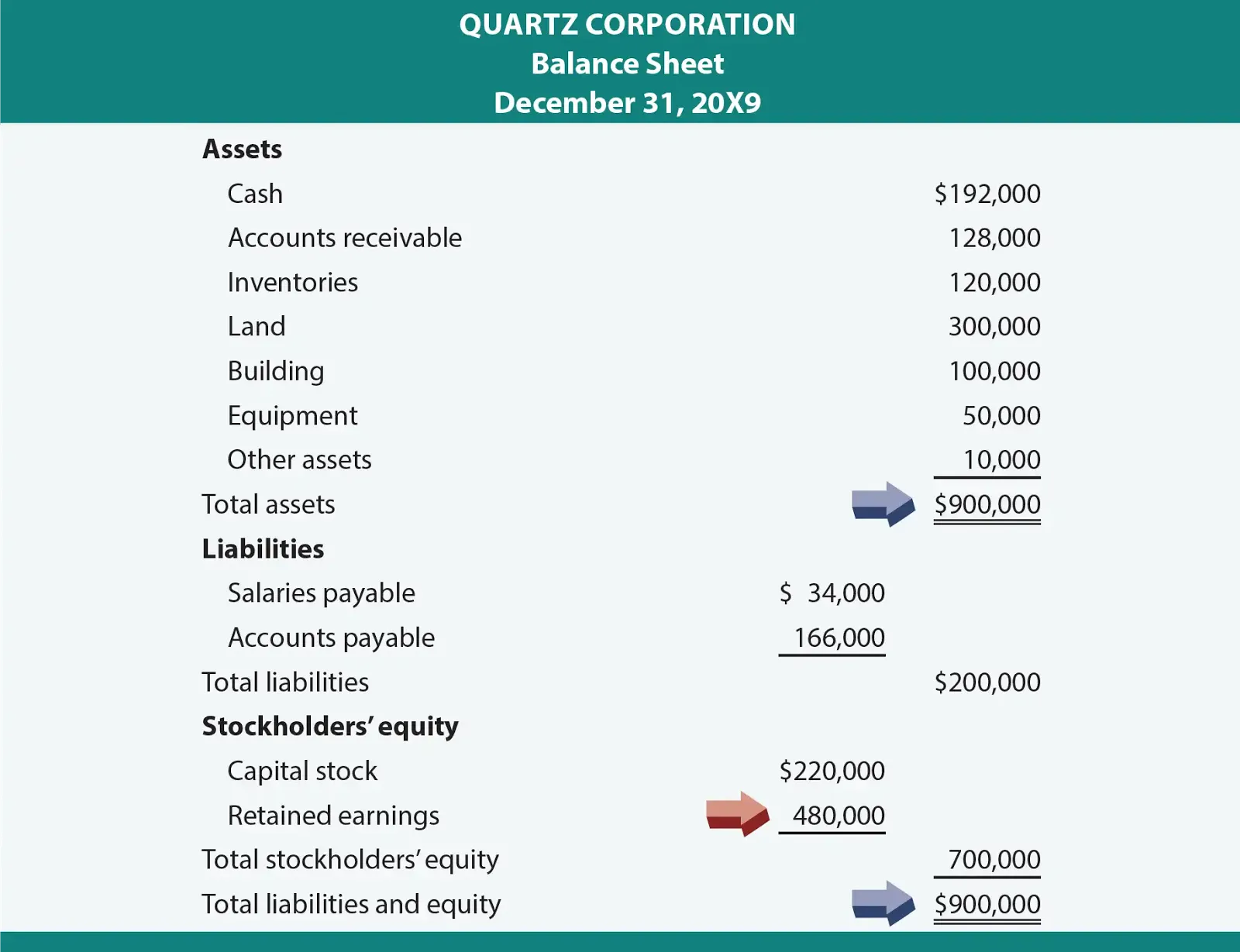Retained Earnings Formula Balance Sheet - The steps to calculate retained earnings on the balance sheet for the current period are as follows. The formula to calculate retained earnings starts by adding the prior period’s balance to the current period’s net. This is the cumulative incomes from the current year’s earnings and the previous years, save for any dividends distributed to. To calculate re, the beginning re balance is added to the net income or reduced by a net loss and then. Retained earnings are reported on the balance sheet under the shareholder’s equity section at the end of each accounting period. At the end of every accounting cycle, you’ll see retained earnings on the balance sheet. Your accounting software will handle this calculation for you when it. The retained earnings formula is fairly straightforward: As an important concept in accounting, the word “retained” captures. Retained earnings are the cumulative net earnings or profits of a company after accounting for dividend payments.
This is the cumulative incomes from the current year’s earnings and the previous years, save for any dividends distributed to. Your accounting software will handle this calculation for you when it. The formula to calculate retained earnings starts by adding the prior period’s balance to the current period’s net. As an important concept in accounting, the word “retained” captures. The retained earnings formula is fairly straightforward: Retained earnings are reported on the balance sheet under the shareholder’s equity section at the end of each accounting period. Retained earnings are the cumulative net earnings or profits of a company after accounting for dividend payments. To calculate re, the beginning re balance is added to the net income or reduced by a net loss and then. The steps to calculate retained earnings on the balance sheet for the current period are as follows. At the end of every accounting cycle, you’ll see retained earnings on the balance sheet.
Retained earnings are reported on the balance sheet under the shareholder’s equity section at the end of each accounting period. This is the cumulative incomes from the current year’s earnings and the previous years, save for any dividends distributed to. At the end of every accounting cycle, you’ll see retained earnings on the balance sheet. As an important concept in accounting, the word “retained” captures. To calculate re, the beginning re balance is added to the net income or reduced by a net loss and then. The steps to calculate retained earnings on the balance sheet for the current period are as follows. The formula to calculate retained earnings starts by adding the prior period’s balance to the current period’s net. The retained earnings formula is fairly straightforward: Your accounting software will handle this calculation for you when it. How to calculate retained earnings.
Retained Earnings Explained Definition, Formula, & Examples
As an important concept in accounting, the word “retained” captures. The steps to calculate retained earnings on the balance sheet for the current period are as follows. This is the cumulative incomes from the current year’s earnings and the previous years, save for any dividends distributed to. How to calculate retained earnings. Your accounting software will handle this calculation for.
Retained Earnings on the Balance Sheet Overview Business Accounting
How to calculate retained earnings. The steps to calculate retained earnings on the balance sheet for the current period are as follows. The retained earnings formula is fairly straightforward: Retained earnings are reported on the balance sheet under the shareholder’s equity section at the end of each accounting period. To calculate re, the beginning re balance is added to the.
Retained Earnings Definition, Formula, and Example
As an important concept in accounting, the word “retained” captures. At the end of every accounting cycle, you’ll see retained earnings on the balance sheet. The formula to calculate retained earnings starts by adding the prior period’s balance to the current period’s net. How to calculate retained earnings. The retained earnings formula is fairly straightforward:
What are Retained Earnings? Guide, Formula, and Examples
Retained earnings are reported on the balance sheet under the shareholder’s equity section at the end of each accounting period. The formula to calculate retained earnings starts by adding the prior period’s balance to the current period’s net. As an important concept in accounting, the word “retained” captures. The retained earnings formula is fairly straightforward: The steps to calculate retained.
Balance Sheet and Statement of Retained Earnings YouTube
Retained earnings are reported on the balance sheet under the shareholder’s equity section at the end of each accounting period. As an important concept in accounting, the word “retained” captures. The retained earnings formula is fairly straightforward: The steps to calculate retained earnings on the balance sheet for the current period are as follows. This is the cumulative incomes from.
What Is Meant By Retained Earnings in Balance sheet Financial
Retained earnings are the cumulative net earnings or profits of a company after accounting for dividend payments. At the end of every accounting cycle, you’ll see retained earnings on the balance sheet. As an important concept in accounting, the word “retained” captures. The formula to calculate retained earnings starts by adding the prior period’s balance to the current period’s net..
Retained Earnings What Are They, and How Do You Calculate Them?
This is the cumulative incomes from the current year’s earnings and the previous years, save for any dividends distributed to. The retained earnings formula is fairly straightforward: Your accounting software will handle this calculation for you when it. To calculate re, the beginning re balance is added to the net income or reduced by a net loss and then. At.
What are Retained Earnings? Guide, Formula, and Examples
This is the cumulative incomes from the current year’s earnings and the previous years, save for any dividends distributed to. Retained earnings are the cumulative net earnings or profits of a company after accounting for dividend payments. The formula to calculate retained earnings starts by adding the prior period’s balance to the current period’s net. Your accounting software will handle.
Looking Good Retained Earnings Formula In Balance Sheet Difference
Retained earnings are reported on the balance sheet under the shareholder’s equity section at the end of each accounting period. The steps to calculate retained earnings on the balance sheet for the current period are as follows. At the end of every accounting cycle, you’ll see retained earnings on the balance sheet. This is the cumulative incomes from the current.
What Is the Normal Balance of Retained Earnings
At the end of every accounting cycle, you’ll see retained earnings on the balance sheet. How to calculate retained earnings. Retained earnings are the cumulative net earnings or profits of a company after accounting for dividend payments. To calculate re, the beginning re balance is added to the net income or reduced by a net loss and then. Retained earnings.
This Is The Cumulative Incomes From The Current Year’s Earnings And The Previous Years, Save For Any Dividends Distributed To.
The retained earnings formula is fairly straightforward: To calculate re, the beginning re balance is added to the net income or reduced by a net loss and then. Your accounting software will handle this calculation for you when it. How to calculate retained earnings.
At The End Of Every Accounting Cycle, You’ll See Retained Earnings On The Balance Sheet.
As an important concept in accounting, the word “retained” captures. Retained earnings are reported on the balance sheet under the shareholder’s equity section at the end of each accounting period. The steps to calculate retained earnings on the balance sheet for the current period are as follows. Retained earnings are the cumulative net earnings or profits of a company after accounting for dividend payments.

